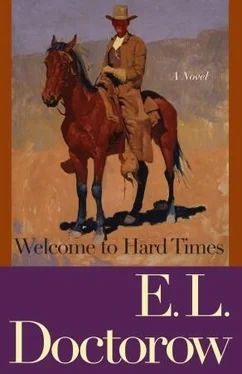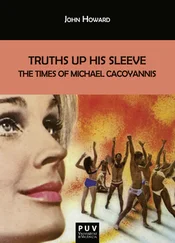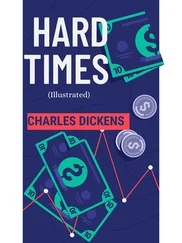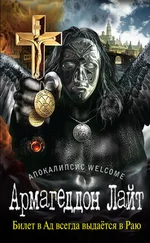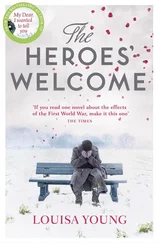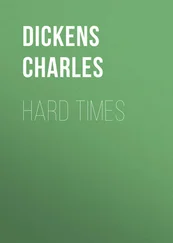I will say this, whatever else was to happen John Bear was the best doctor I ever saw, white or red; he had a true talent for healing and it must be owned him.
Before he left he stepped up to Molly and while she stood startled, unwound the thin chain from her throat and dropped the cross at Jimmy’s head. He was no Christian but a modest man; Molly had clutched the cross during her healing and he was no one to deny the power of a charm.
Then came that long day and night with the wind whipping snow down from the rocks, and inside the dugout, droplets of water prickling the sod walls as the steam rose from the pot on the stove. I kept feeding the fire and filling the pot. Molly sat with the boy propped against her, he was coughing up matter and spitting it into a rag she held to his face. His eyes were smarting from the mustard, his chest ached with the coughing and burned from the poultice, he was in thorough misery. Whenever he made as if to tear the blanket away she held his hands and whispered: “Let it burn, let it burn deep!”
Sometime during that siege Miss Adah came pounding on the door wanting to know how the boy was doing. She wouldn’t come in so I had to step outside and we shouted to each other a few moments before she scurried back to the saloon.
Jimmy didn’t take anything for supper but during the night, after the snow let up, I thought he was breathing easier. Still he couldn’t close his eyes and Molly, laying his head against her breast, put her arms around him. It was an effort for her, she was blushing, she kept looking at me as if she expected me to laugh at her.
There was a panic in her eyes for a moment, she wanted to talk to the boy, to soothe him, but she had trouble with the words. She had to go back a long way to find them:
“I bet you never seen a big city. Molly used to live in New York, did you know that? Oh it’s a grand place with stone houses all in rows, and cobbled streets and lamps on each corner that the man comes to light each evening with a long taper. And the carriage buses you see, so shiny and clean, with horses pulling them that are braided in the mane, high stepping. Did you know that …?”
I was sitting with my back to the wall and chewing on a prairie cake and as Molly went on talking I watched her close. The more she talked the easier the words came. The boy’s eyes were open and listening and he was breathing heavily, and Molly sat with her own eyes closed as she summoned up her pictures.
“… and each morning I would have a fresh black frock to put on and a white linen apron and a little starched cap to pin to my hair, as clean and starched as a nun I was. And that house! Well you’ve never seen the likes, a good fifteen rooms, each room fitted out with its own set of furniture and its polished floor of wood and its fancy rug. Why you could disappear into one of those big soft beds. And in the dining room, that was a room just used for eating, can you see that? the table would be covered with a fine cloth tasseled at the edges, and maybe ten settings of pure silver forks and knives and spoons, with three or four glasses at each place for the different waters or wines. And with the people all talking and laughing and the room lit up with candles, in we would come from the kitchen, three or four of us, carrying trays of hot vegetables and buns and a hen, maybe, and a roasted ham to serve to all the ladies and gentlemen. All the ladies and gentlemen …”
I will never forget her words. Even after the boy’s eyes were closed she sat holding him around, whispering these remembrances. It was the most she ever said about herself, it was the most I ever learned about her. She was speaking the brogue. I had never heard her use it before, and I wouldn’t again.
“All the lovely ladies, all the fine gentlemen …”
Then her eyes opened and she saw me looking and “Turn away!” she said, her eyes filling with tears. “Don’t you dare look at me, turn away!” Even without her telling me I would have had to, such terrible pride was blinding.
Later Molly slipped away from the boy and laid him down in his sleep which was so long in coming. And we each stretched out to get some sleep too. But all the blankets were on Jimmy and after the fire went down it was cold lying there, there was a chill in my bones that made them ache. I couldn’t sleep and neither could Molly. I heard her shivering. I moved near her and touched her shoulder and with a cry she rolled over and bundled up to me. “Damn you Mayor,” she whispered in my ear, “I swear I can’t bear the sight of you!” And I held her as tight as I could, feeling her breast on mine, feeling her breathing, and then the warmth came and I didn’t move until she was asleep. I think I had wanted to hold her ever since the fire. My hands were on her back and I could feel the scars under her dress. She was small, so much smaller than she looked. I held her around, pressing her to me and I thought well we’re both suffering our lives, only how we do it is different. If it replenishes her to hate me then let her hate me. At the worst her hate is something between herself and herself. And knowing it I was ashamed I had ever felt poorly of her.
Jimmy was slow to get better, his cough lingered for weeks. Molly tended to him each minute of the time and didn’t ask any help from me. She cooked him soups, she kept him well wrapped; and on his walking day she held him under the elbows while he slowly stepped around the cabin. On occasion she went to consult with John Bear, bringing the Indian her portion of food. And if she returned with some more treatment Jimmy might have wanted to squawk but he submitted to it without a word. There was something about Molly that commanded him: she went about her ministering shortly, with never a smile, as if in one moment of a too tried patience she would just give him up and leave him to himself.
She had already left me to myself. Our bundling had warmed her only to the point where she hardly acknowledged that I was there in the cabin. She kept busy with the boy and with the steady cold now I was fairly locked in; so that there was not much I could do but take away the slops, or worry would we have fire to last the winter. When Jimmy was on his feet I thought he might want to take up our reading lessons once more. But he didn’t seem keen on it, his eyes always wandered to the woman, and what use there was to the almanac; even that I had to myself.
I spent a lot of time studying the almanac. It kept me from brooding or wondering where the Bad Man might be enjoying his winter. It had census figures for the different states and their counties, and the dates they were brought into the Union. I have always been one for that kind of reading. Before I got the fever to go West I was bound out to a lawyer for some months, and it pleasured me to feel the legal cap or read the briefs all salted down with Latin. In all my traveling, whenever I came across a Warrant or a Notice of any kind I never failed to read it through. Some people have a weakness for cards, or whittling, my weakness has always been for documents and deeds and such like.
When I first came to Hard Times it was nothing posted that stopped me, I had a small stake in my money belt and I was riding up to the lodes to earn some more. But there was Fee putting the finishing boards on Avery’s two-story saloon, and the sight of him building this place right up off the flat ground struck me somehow. I could think of better places for a carpenter to make his living; not the poorest townsite I’d seen it still didn’t look worth his labor, yet Fee was working with an assurance that made me feel ashamed even to question him. In my forty-eighth year, tired out with looking, looking, moving always and wanting I don’t know what, I was ready to grant it wasn’t the site but the settling of it that mattered. I bought a room off the porch from Hausenfield and I stayed. Later, without much thinking about it, I got a ledger from a traveling notions man; and after I acquired that lawyer’s desk and belongings who was going up to work in the lodes, I put the ledger on the desk and in my spare time I began to put down everyone’s name and the land they claimed and what properties they owned. I never enjoyed anything more. The town hadn’t a promoter, you see, and there were no records for anything. If it ever got big enough to be listed or if the Territory ever needed names for a statehood petition, why I had these documents. A few people like Avery laughed when it went about what I was doing; later, Avery was one of the first to call me Mayor—
Читать дальше
